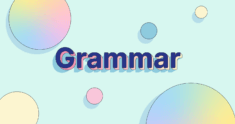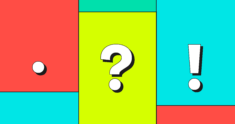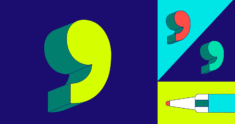- Until indicates when something will happen, begin, or end.
- Till means the same thing as until.
- Till is not an abbreviation of until—it’s actually older than until—and it should not be written with an apostrophe.
- ’Til turns up now and then, but major usage dictionaries and style guides consider it an error, so it’s best to avoid it.
If you’re confused about the relationship between until and till, you’re in the right place. And if you’re wondering about ’til, keep reading.
Till vs. ’til
The first question we’ll address is simple—how do you spell the abbreviated form of until? The short answer is, you don’t. Till is not an abbreviation of until. It’s a different word. But if you thought it was an abbreviation or a contraction, you’re not alone. Over the past few decades, many writers have made the same mistake, which is why you might occasionally see till written as ’til. A few usage guides allow ’til in very casual writing or in poetry, but most consider it an error. So if you want to make sure you’re always correct, don’t use ’til.
According to Merriam-Webster till has multiple meanings. It’s also defined as the noun “cash register or drawer for money” and as the verb “to prepeare and cultivate land.”
Until vs. till
OK, ’til is bad. But what’s the difference between till and until?
Is there a difference in meaning? No, till and until mean the same thing. They indicate how long something will happen or when it will start or end.
I’ll be busy till 5:30 today.
Is one more correct than the other? No, until and till are both real and correct words. In fact, till is the older of the two words, by several hundred years.
Is one more formal than the other? Actually, yes. Until is usually perceived as slightly more formal than till—possibly because of the mistaken belief that till is just a shortened form of until. But the difference isn’t huge. You can still use till in formal writing without being wrong.
Using until, till, and ’til
OK, let’s recap. When should or shouldn’t you use these three words?
Until is always correct. You can use it in casual writing or formal writing and no one will ever think it’s wrong. If you always stick to until, you can be sure you’re never making a mistake.
Till is also correct. It means the same thing as until, but it tends to lean a little more toward the casual side. Sometimes the single syllable of till is better for the rhythm of your sentence than the two syllables of until. That being said, you should keep in mind that even though till is perfectly correct and even older than until, not everybody knows that. If you use till, it’s possible that some people might think you’re using an abbreviation of until. That could present a problem in formal writing—not because the word itself is wrong but because of the misconception that follows it. If you think your readers may believe that till is a problem, stick with until.
And that brings us to ’til. You might find a dictionary that cites it as an informal version of until, but you won’t easily find it in any publication that employs editors. So, when you’re talking with your friends, you can use ’til if you really want to. But everywhere else, you’re better off with until or till.
Until and till: Examples in sentences
Sunderland have signed free agent Victor Anichebe on a deal until the end of the season.
—BBC
The idea behind the original Till Death Us Do Part was to challenge racism by showing Alf Garnett (played by Warren Mitchell) as an idiotic character.
—The Telegraph






